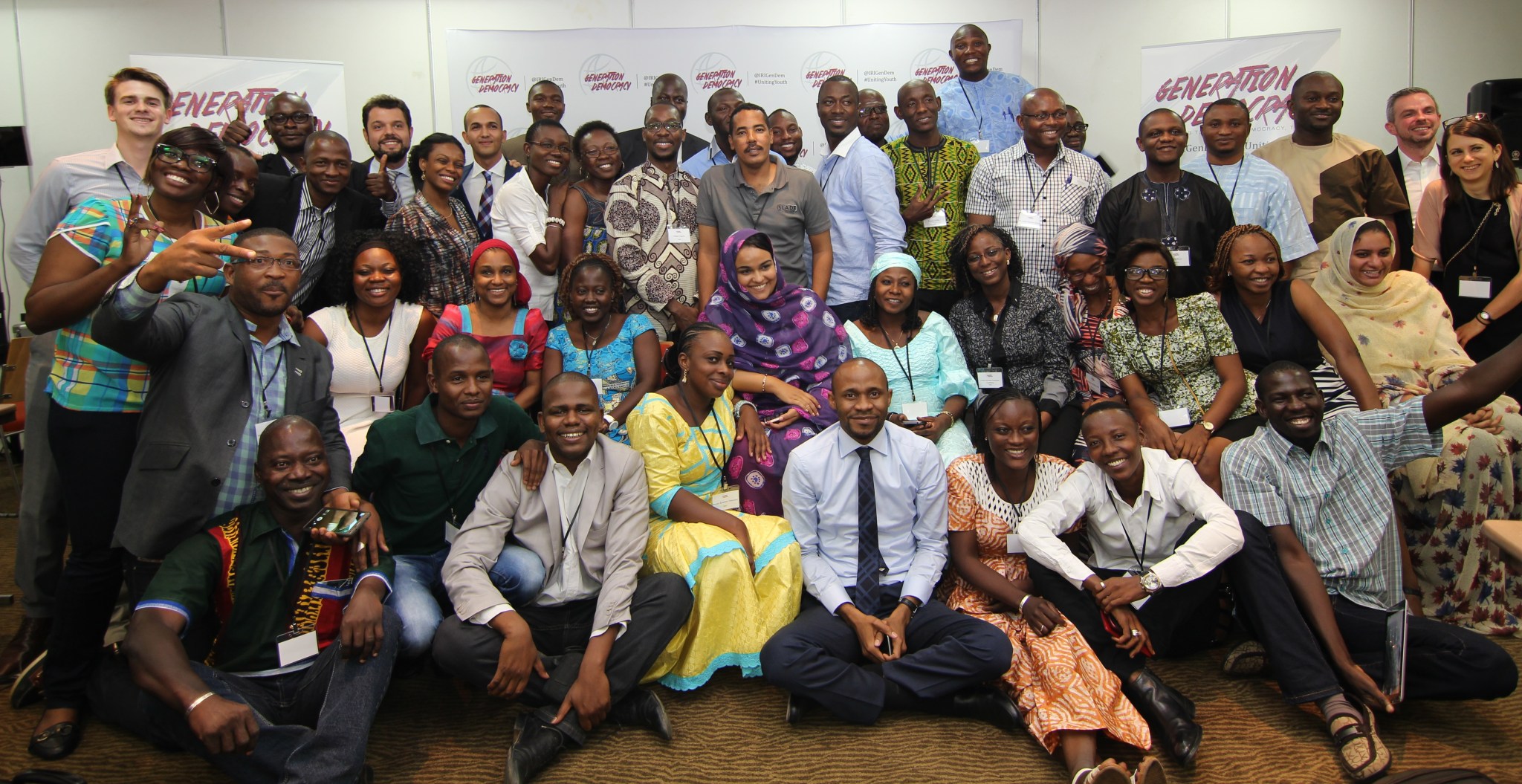International Youth Day 2016: Supporting Meaningful Global Youth Engagement

To mark International Youth Day 2016, the Consortium for Elections and Political Process Strengthening (CEPPS) reaffirms its commitment to supporting inclusive and meaningful global youth engagement.
CEPPS recognizes that young people around the world face incredible individual, socio-cultural, and institutional challenges as they navigate their transition from the dependence of childhood to active citizenship in adulthood. Girls and young women, in particular, face additional barriers to meaningful public participation due to gender inequality and related family and community expectations which often constrain their ability to participate in public life. Similarly, youth with disabilities, lesbian, gay, bisexual, transgender, and intersex (LGBTI) youth, and ethnic or religious minority youth also confront additional barriers and formal and/or informal restrictions to fully exercising their rights; such barriers reduce access to public institutions and political participation. In light of these challenges, it is essential to both inculcate today’s young people – the largest global youth cohort ever– around the world with democratic values, engage them in political processes, and create meaningful opportunities for participation. This will better enable youth to be active agents in breaking down these barriers to access and in ensuring inclusive, responsive political systems.
CEPPS’ experience indicates that youth engagement is best viewed as both an intrinsic democratic value and as an instrumental driver of democratic change. Furthermore, experience has proven that youth engagement is most effective when approached through an intersectional framework which recognizes the ways in which young people’s multiple identities may affect their ability to participate in public life. When young people are able to organize collectively and take strategic political action, they develop the power to make government more transparent, accountable, inclusive, and responsive. Collective action, including issue advocacy, community organizing, and elections and political process monitoring, build civic leadership, social networks, and functioning relationships with public officials. Technologies such as SMS, social media, and others provide new opportunities to aggregate and amplify youth voices, empower self-organizing youth movements as powerful sources of change, and enhance their credibility by strengthening connections to a diverse public.
CEPPS support diverse young people around the world in using such techniques to become more active in public life and to work to break down the barriers they face in influencing political decision making. The National Democratic Institute (NDI), for example, is working with local civil society organizations (CSOs) and universities in Nicaragua to provide training on political leadership skills for emerging young political leaders, including women, indigenous youth, LGBTI youth, and youth with disabilities. Upon completion of the program, select alumni have received technical assistance from NDI in conducting advocacy campaigns on issues affecting their communities, from environmental degradation to youth unemployment. Through its Youth Leadership Program (YLP) in Kosovo, NDI is assisting young women and men from ethnic Serb and other minority communities in identifying issues in their municipalities and engaging local and national officials to seek effective solutions. The 70 young activists who have participated in YLP since 2013 have engaged more than 1,200 other citizens and elected officials to address a variety of community issues, including traffic safety, preventing bullying, and freedom of movement for people with disabilities.
In order to build the foundation for sustained civic and political engagement, the International Foundation for Electoral Systems (IFES) works with educational institutions and other youth-serving organizations around the world to provide both school-based and non-school based civic education for young people. In Georgia, IFES has partnered with 27 institutions of higher learning to implement a fully accredited university-level civic education course; there are more than 7,000 course alumni throughout the country. The curriculum requires students to apply the theoretical knowledge gained through classroom work to real world situations in their communities, analyzing their communities and then designing and implementing projects to address identified issues. Student projects have focused on a broad array of topics including peer-to-peer voter education in ethnic minority regions and youth actions to promote disability rights throughout the country. In Central and South Asia, IFES engages young people outside of the classroom through summer camps and after-school clubs and programs, which serve to augment students’ traditional curricula in a fun and engaging context.
Most recently, the International Republican Institute (IRI) has launched “Generation Democracy”, a global youth network that connects young people to share their experiences and best practices for advancing democracy within their own communities, and helps build the skills that youth need to pick up the mantle of the next generation of democratic leadership around the globe. Through Generation Democracy, IRI partners with a diverse network of more than 400 member organizations in 75 countries striving to expand the political space for youth in their own countries and to ensure that youth have a stronger voice in local and national institutions. Generation Democracy champions a “youth first” message to encourage young people to identify with the shared community of “youth” that is broadly inclusive across gender, race, religion, sexual orientation, disability, ethnicity, and social status. With this message, IRI hopes to develop a global community of youth that are able to overcome cultural, socioeconomic, and political differences to build a brighter future together.
Through its programming around the globe, CEPPS empowers young people to organize around their interests and take concrete steps to open, access, and occupy political space. Particularly within the context of the current youth “bulge”, CEPPS believes that an active and engaged youth population is closely linked to improved democratic governance and state-citizen relations. This requires that young people are not only aware of their rights and responsibilities in a pluralistic society, but also have the skills and knowledge necessary to leverage these rights to access public institutions and officials and to effectively advocate for change within their communities by serving as community leaders, elected officials, and public servants.
For more information on CEPPS’ youth engagement work, please visit:
https://www.ndi.org/youth
https://www.iri.org/program/youth-leadership
http://www.ifes.org/issues/youth-engagement
Top